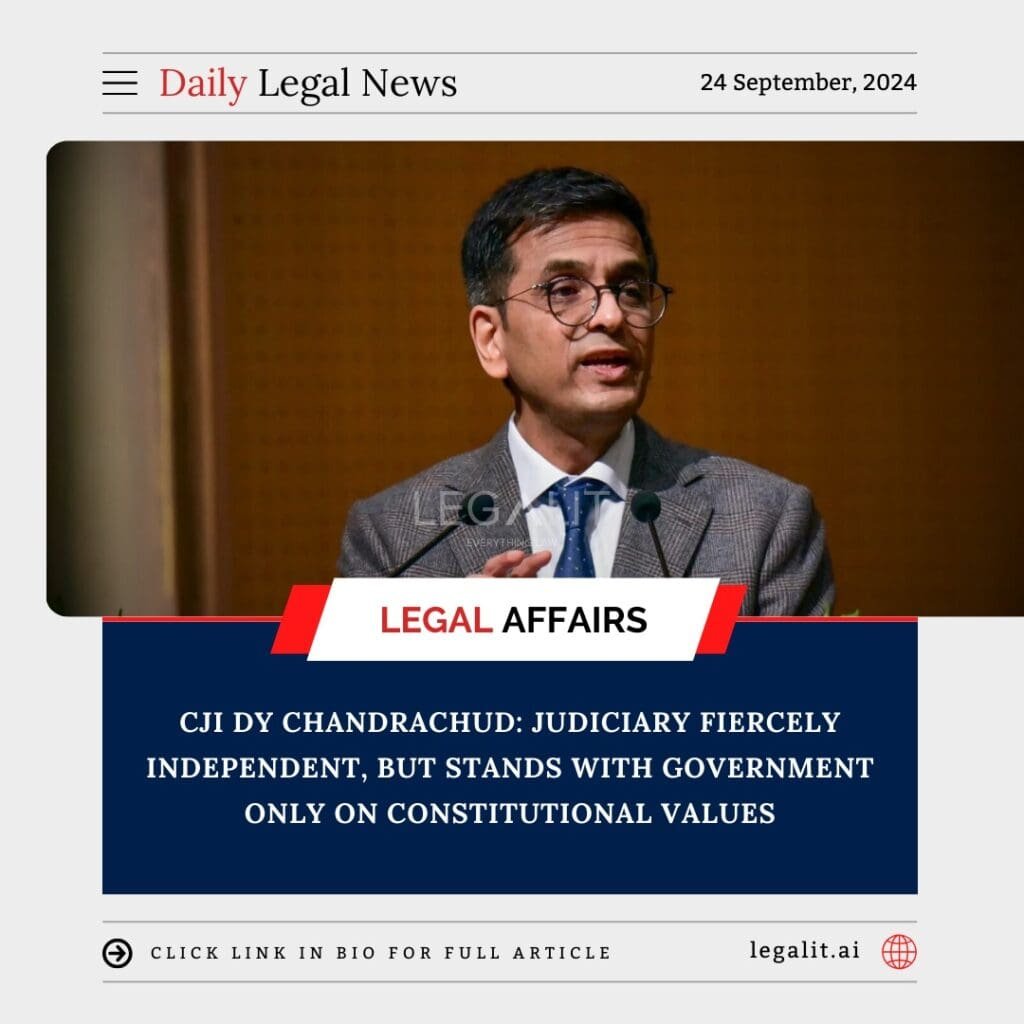
In a recent statement, Chief Justice of India DY Chandrachud reiterated the independence of the Indian judiciary, asserting that while the judiciary remains independent and impartial, it aligns with the government only on matters that concern constitutional values and the protection of fundamental rights. This statement comes at a time when the balance of power between the judiciary and the government is under significant public scrutiny.
1. Judicial Independence as a Cornerstone
CJI Chandrachud strongly emphasized that the independence of the judiciary is the bedrock of democracy. He pointed out that the judiciary is not subservient to any government and acts as a check on executive and legislative power. According to him, this independence is crucial for maintaining the rule of law and ensuring that justice is served without any external pressure or influence.
2. Alignment with Constitutional Values
While asserting the judiciary’s independence, CJI Chandrachud clarified that the judiciary stands with the government only when it comes to upholding the Constitution and ensuring the implementation of constitutional principles. This includes safeguarding fundamental rights, promoting equality, and ensuring justice for all citizens. The judiciary’s role is to ensure that the government operates within the framework of the Constitution and does not violate the rule of law.
3. Judicial Review and Accountability
CJI Chandrachud reaffirmed the judiciary’s role in exercising judicial review, a process that allows courts to evaluate the constitutionality of laws and government actions. The Chief Justice explained that the courts act as protectors of *individual liberties and constitutional mandates, holding the government accountable when it deviates from the law. In this context, the judiciary’s alignment with the government is limited to ensuring that governmental policies and actions are in line with *constitutional morality.
4. Judiciary as a Balancer of Powers
The statement also highlighted the judiciary’s role as a balancer of powers between the executive, legislative, and judicial branches. CJI Chandrachud stressed that while the government has the responsibility of governance and policymaking, the judiciary ensures that such actions are not arbitrary or unjust, particularly when it comes to the rights of citizens. The judiciary, therefore, acts as a guardian of democratic values and prevents the overreach of governmental power.
5. Collaboration for Constitutional Goals
CJI Chandrachud noted that collaboration between the judiciary and the government is possible when the objectives align with constitutional goals, such as advancing social justice, ensuring economic equality, and promoting legal reforms that benefit the public. However, he reiterated that this cooperation should never compromise the judiciary’s autonomy or its commitment to the rule of law.
Chief Justice DY Chandrachud’s remarks underline the delicate balance that the judiciary maintains in its relationship with the government. While fiercely independent, the judiciary aligns with the government only in matters that uphold constitutional values, ensuring that the executive functions within the legal framework and respects the fundamental rights of citizens. This statement reinforces the judiciary’s role as a custodian of democracy and a protector of individual liberties.